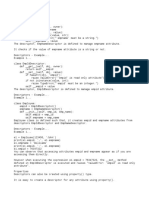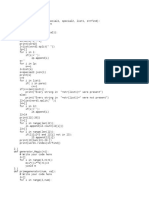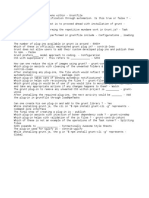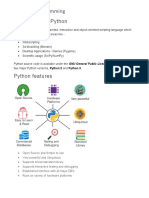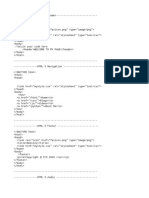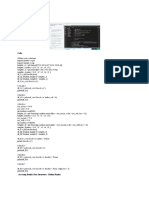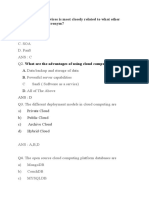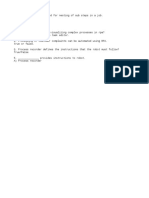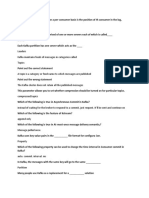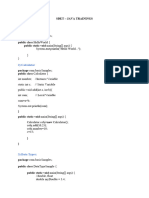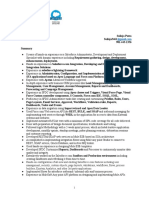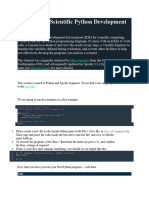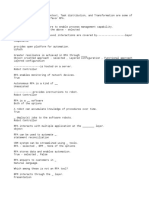0% found this document useful (0 votes)
582 views19 pagesGroovy Programming Fresco Play Handson Answers
Groovy Programming
Uploaded by
Krishna RajesCopyright
© © All Rights Reserved
We take content rights seriously. If you suspect this is your content, claim it here.
Available Formats
Download as DOCX, PDF, TXT or read online on Scribd
0% found this document useful (0 votes)
582 views19 pagesGroovy Programming Fresco Play Handson Answers
Groovy Programming
Uploaded by
Krishna RajesCopyright
© © All Rights Reserved
We take content rights seriously. If you suspect this is your content, claim it here.
Available Formats
Download as DOCX, PDF, TXT or read online on Scribd
/ 19



